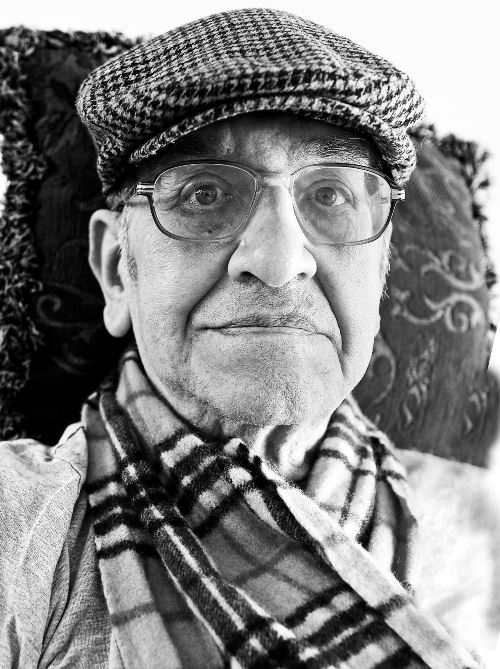 Grown-ups slinking off to the basement signified the start of a game my younger sister and I nicknamed ‘spying on the dark stairs’. As we crept down the stairs we could just make out the faint glow of radio valves and audio, muffled by a blanket my parents and friends were huddled beneath. We were living in Florence and I was only six years old, but even now I can recall those times as if it were yesterday. As the weeks and months went on the frequency of such behaviour intensified. This all might sound extreme, but just the simple act of listening to foreign radio was fraught with danger. If caught the very least they could expect was a beating – yet, it was a risk worth taking. The BBC became the voice of truth for oppressed people in Nazi-dominated Europe.
Grown-ups slinking off to the basement signified the start of a game my younger sister and I nicknamed ‘spying on the dark stairs’. As we crept down the stairs we could just make out the faint glow of radio valves and audio, muffled by a blanket my parents and friends were huddled beneath. We were living in Florence and I was only six years old, but even now I can recall those times as if it were yesterday. As the weeks and months went on the frequency of such behaviour intensified. This all might sound extreme, but just the simple act of listening to foreign radio was fraught with danger. If caught the very least they could expect was a beating – yet, it was a risk worth taking. The BBC became the voice of truth for oppressed people in Nazi-dominated Europe.
'my father was declared an enemy alien'
In 1938 Hitler’s lean on Mussolini intensified and saw the introduction of the Italian leader’s Manifesto of Race. In that instant Italian Jews were stripped of their citizenship and, if applicable, removed from government positions – something that, being Jewish, directly affected my family. Until then we’d led a very good life. My father, among various consultancy roles, was a professor at the University of Florence – but overnight everything changed. He’d seen the storm clouds gathering on the horizon; he knew there was going to be war – Italy wasn’t his country any more.
With assistance from the Society for the Protection of Science and Learning (a body set up by distinguished academics in England to help Jewish scientists and scholars trapped by circumstance) my father wasted no time in getting his passport, money and tickets to Vienna, Paris and finally London in order to pave the way for our arrival. In readiness for our trip to England myself and my sister moved to our grandparents near Italy’s north-eastern border with Austria, while Mother greased the palms of petty officials in order to obtain our passports. Six months later, on 23 March 1939, with little more than hand luggage we boarded a boat and crossed the Channel to England. Despite a curtain of mist, the White Cliffs of Dover were an emotional sight – only bettered by Father awaiting our arrival at Victoria Station. Finally we were reunited. Our journey that could have easily been thwarted on a minor pretext was over.
Initially my father worked at the Lister Institute in London. But with specialist scientific skills, such as his, in high demand he moved (leaving us in London) to ICI in Manchester. However, in June 1940 Mussolini declared war on Britain. Overnight, Italians, my father included, were declared enemy aliens and frogmarched to internment camps. The atmosphere of such camps – Father’s was on the Isle of Man – was in general cordial on both sides, with ICI playing a big part in obtaining his release after sixteen weeks. During this period communications were sketchy, so to reassure us that all was fine he returned to London. However, as he approached our house he feared the worse. London was in the midst of the Blitz; the capital was ablaze and our home, like countless others, was seriously damaged (with us still inside it) when a bomb landed in our street. If we hadn’t taken shelter under the stairs, our fate could have been much worse.
'people are worth the effort, and people make a town what it is'
We all hastily travelled to Manchester, where Father continued his work for ICI. I’d gone through a lot in life considering I was still only eight years old. But despite everything I was a happy boy with parents who were strong, loving and resilient. Plus, I’m happy to say the subsequent years were far less traumatic. I finished my schooling; went on to university (to follow in my father’s scientific footsteps); completed two years’ National Service and met a nurse – who in 1957 became my wife.
In 1955, after fifteen years at ICI, my father took employment at a London-based research and development company – which later (with Father in tow) relocated to Harlow. My parents settled in well, no doubt due to the small but active Jewish community present within the town. This was my first opportunity to witness Harlow – a new town so full of promise.
In 1962 my academic years were over. Initially I worked in London, before moving to Harlow in 1964 and taking employment at the same R&D company my father had before me. In 1968 we moved back to Lancashire, but returned to Harlow from time to time when visiting my parents. On such trips I was fascinated to see how the town was developing, but over time fascination changed to a feeling of despondency – Harlow was on a slippery slope downwards. In 1988, after I suffered a period of ill health, my wife and I returned to Harlow and settled into the house my parents had left to me in their will.
Once again I was a resident of the town and therefore able to witness first-hand what I thought was a lacklustre approach by those in charge. Woe betide any local MP who would come canvassing at my door – they were often given an intensive talking-to! All this fuelled my political motivations, which resulted in me deploying the ‘If you can’t beat them, join them’ analogy. In 2002 I’m proud to say that my wife and I were part of the Conservative Party movement that overturned fifty-seven years of Labour rule in the town. In later years I served, among other roles, as vice chairman of Harlow Council. We made progress, but after eleven years of what can only be described as ‘trying to push water uphill’, I resigned from the Conservatives and formed the Harlow Independent Party.
I love Harlow and despite my poor health I’ll continue to fight its corner and defend it vigorously when confronted by those who feel harshly towards the town. Harlow is still worth the effort; people are worth the effort, and people make a town what it is.
